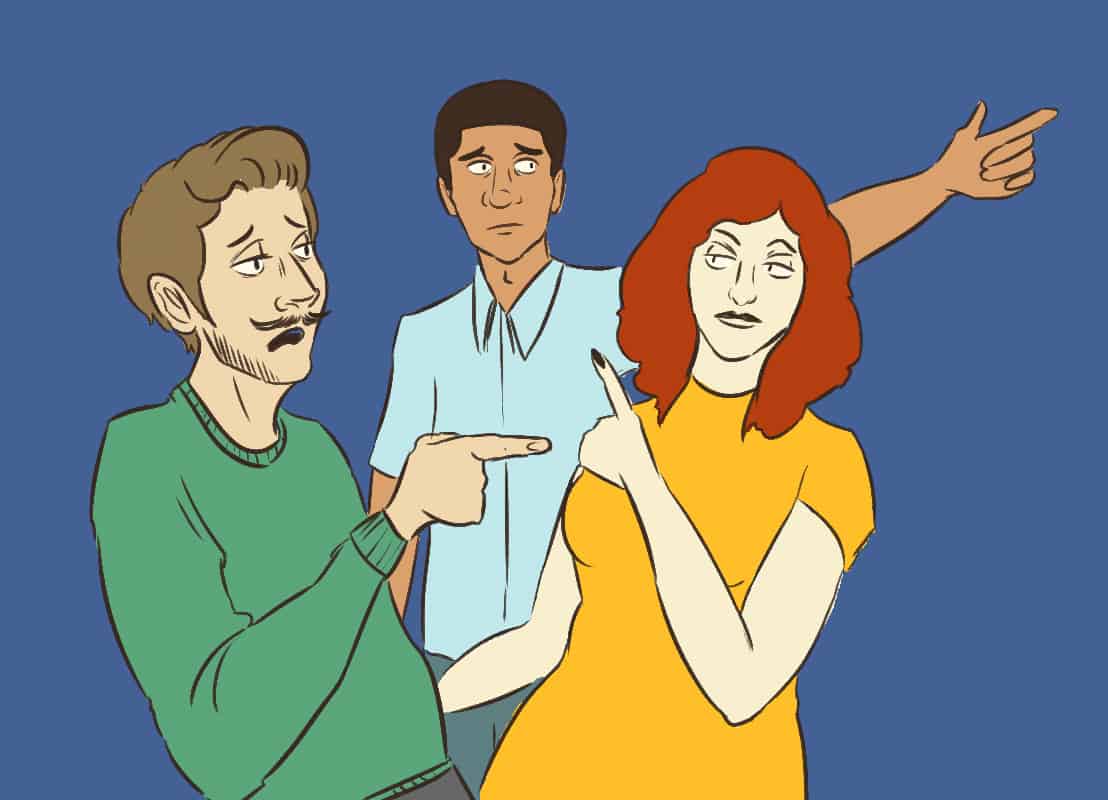Earlier this year, former UTSU president Yolen Bollo Kamara came under fire for advancing a “black rights” agenda at U of T. The accusation implied that by endorsing #BlackLivesMatter protests — which advocated for non-black allies staying behind black protestors — and sponsoring an anti-racism discussion, Kamara was being unnecessarily exclusionary.
Similar accusations arise frequently at other universities. For example, controversy arose when the Racialized Students’ Collective at Ryerson University excluded two white student reporters from one of their meetings. At McGill University, critics said proposals for women-only gym hours were “sexist towards men.”
These cases of “reverse discrimination” are supposed reversals of fortune: instead of a minority being excluded or denied privileges, members of a majority are the ones that claim to be getting the short end of the stick.
While discrimination debates are extremely complex, the fact remains that certain individuals continue to face discrimination at much higher rates than others, regardless of anti-discrimination efforts.
For instance, although many sexual assault survivors are men, in comparison, women still face much higher rates of sexual assault. According to the Ontario Women’s Directorate, women are 11 times more likely than men to be victims of sexual offences. In 99 per cent of sexually violent acts committed against women, the accused perpetrator is male.
In a comparable way, Aboriginal Canadians face above-average unemployment, incarceration, and high school dropout rates — higher even than those of African-Americans in the United States
There are countless other examples; years of systemic oppression and rights violations have demonstrated that some victims are much more “typical” than others. It is therefore flawed to oppose the accommodations or remedies granted to these disadvantaged groups, and use reverse discrimination to justify it.
Providing help to an individual from one group (who has been marginalized) does not automatically signify an attack against an individual from another group (who has not received the same treatment). If this were true, granting any remedy would automatically result in another wronged party. Such a zero sum conception of rights would mean victims never receive the justice they deserved.
None of this means that individuals from other genders and backgrounds can’t be discriminated against. Anyone can be treated unjustly, even if they do not belong to a recognized marginalized group. It would be just as wrong to turn a blind eye to victims in these “atypical” cases, and providing aid to victims in both situations should not present a contradiction.
That being said, the fact that there are other individuals facing the same hardship should not somehow invalidate a victim’s claims. Otherwise, the varying testimonies of those affected would cancel one another out, rendering progress impossible.
For example, it is absurd to try and mitigate the effect of rape against women by saying that men or other genders are also raped.
Undeniably, all sexual assault victims should be aided, and their aggressors prosecuted. This does not suddenly mean that sexual violence against women is no longer an issue.
The same is true the other way around. A female victim speaking out about her rape does not in any way imply that victims from other genders should go unheard.
Similarly, unemployment, incarceration, and incomplete high school diplomas are not uniquely Aboriginal issues. But because Aboriginals are overrepresented in these categories, providing them with more resources does not necessarily bar other groups from accessing the help they need.
In principle, there is no excuse for mistreating another human being, least of all the fact that others are being mistreated too. It should be our priority to hear out individual victims, and work towards eliminating discrimination in general, for all groups.
Therefore, we must listen to the testimonies of victims, and attempt to remedy the injustices committed against them as best as we can. We must work to repair laws and institutional structures that continue to facilitate inequality. And most of all, we must continue to evaluate cases of discrimination case by case, and respect the experiences of victims without adding our own problems to the mix.
Teodora Pasca is a second–year student at Innis College studying criminology and ethics, society & law.


